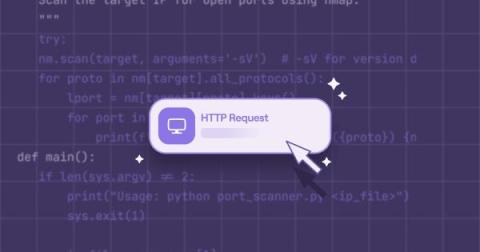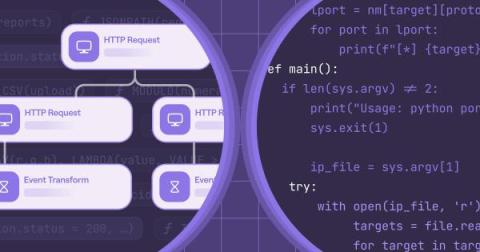Security | Threat Detection | Cyberattacks | DevSecOps | Compliance
Latest Posts
The 9 best security podcasts, according to practitioners
Onboarding at Tines: Six best practices for tackling your first project
Cybersecurity in 2024: Five predictions from our co-founders
With the cybersecurity landscape constantly evolving, discussing cybersecurity trends for 2024 can feel like trying to predict the unpredictable. But amid all the uncertainty, trading ideas about the future of security can help us better understand how to prepare for the months ahead. Here, our co-founders Thomas Kinsella and Eoin Hinchy share five cybersecurity predictions for 2024, including insights on AI's role in security, the ever-changing role of the CISO, and more.
Using Python in Tines: a quick how-to guide
While you can build nearly anything in Tines without writing code, users occasionally prefer to use Python scripts to perform a step in their stories. The reasons for this vary, but we're happy to share that there's a simple way to securely execute Python scripts in Tines. So let's take a closer look at how it works, and talk through some best practices for using Python in Tines.
From code to clicks: My journey from Python to Tines
We recently weighed in on the debate between full-code, low-code and no-code automation. In this post, developer and sales engineer Jesse Strivelli shares his perspective on using the native Tines builder to create automated workflows. I've been immersed in the world of programming for years, having pursued a computer science degree at university and accumulating extensive experience in the field, primarily with major Fortune 500 companies.
Tines vs Python: Understanding alternative approaches to automation
We're sometimes asked, "Can you run Bash or Python scripts natively in Tines?" and today, we're sharing the answer, and weighing in on the debate between full-code, low-code and no-code automation. The short answer is yes, you can run scripts and linux commands natively in Tines, however, you might not necessarily want to. Many of our customers avoid doing so for security, usability and performance reasons. Let's take a closer look at some of these potential pitfalls.
Introducing page collections
In January of this year, we introduced the ability to build apps with Tines. That launch marked an evolution of our pages feature, from forms into a powerful capability for collaboration and communication. Since then, we iterated quickly with features like self-submitting pages, multiple buttons, wider pages, advanced formatting options, and saved themes. One request we received time and time again was pages within pages. Our users wanted to surface a collection of pages from a single reference point.
The best security events to attend in 2024, according to security pros
With security team workloads increasing year-on-year, it’s no surprise that practitioners are selective about the cybersecurity events and conferences they attend. But despite reporting high levels of understaffing and burnout, most security pros find the time to attend these events. According to the 2023 Voice of the SOC report, which surveyed 900 practitioners in the US and Europe, 81% have attended at least one conference in the past two years.
Dmitriy Sokolovskiy: How SecOps teams can measure and communicate their ROI to senior leadership
In this episode of The Future of Security Operations podcast, Thomas interviews industry veteran Dmitriy Sokolovskiy. Dmitriy is a founding member of (ISC)2 Eastern Massachusetts Chapter, and has over 25 years of experience in the security industry, having led teams at Putnam Investments, CyberArk, and, most recently, Avid. He’s a mentor and advisor to several successful startups and sits on the advisory board of companies like Audience 1st.











